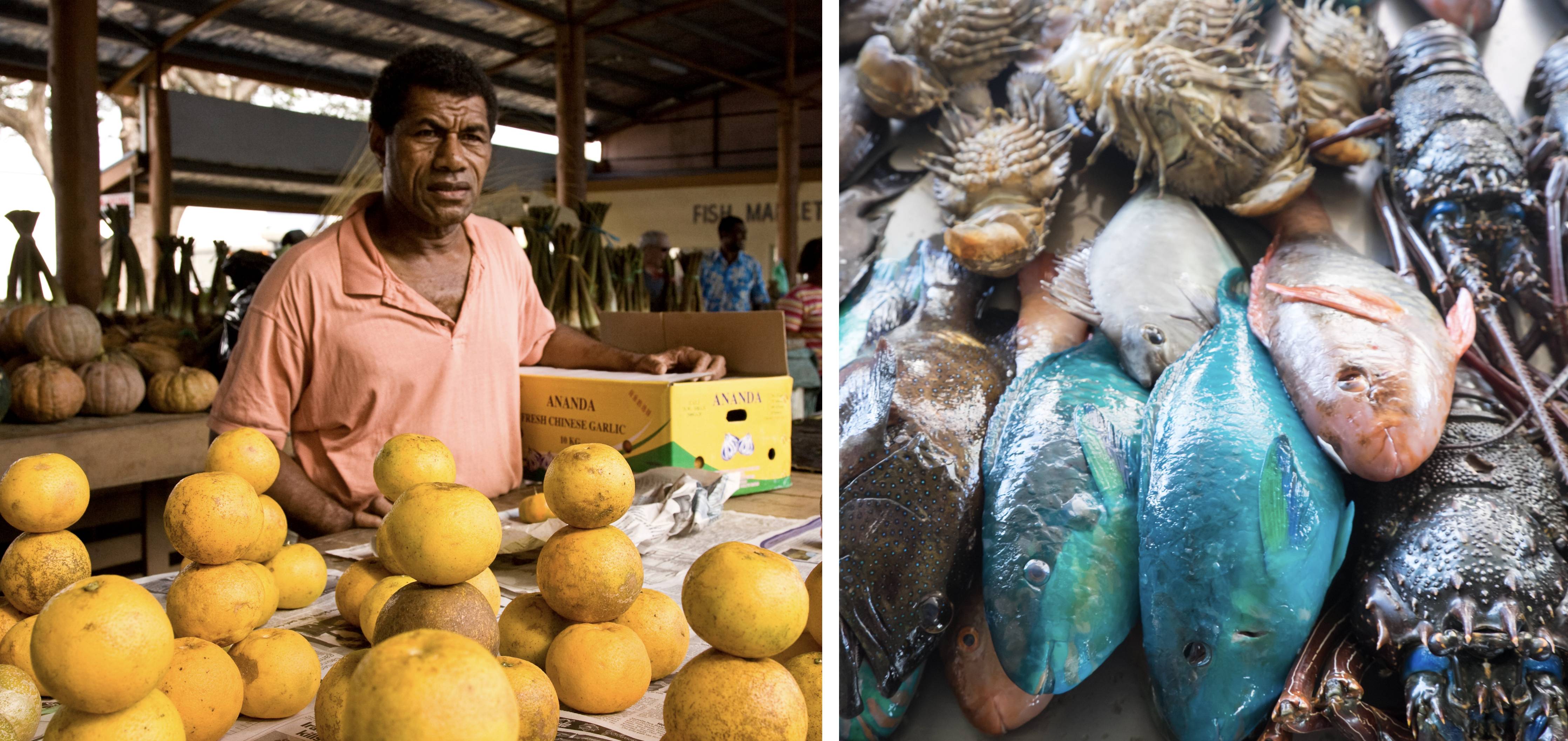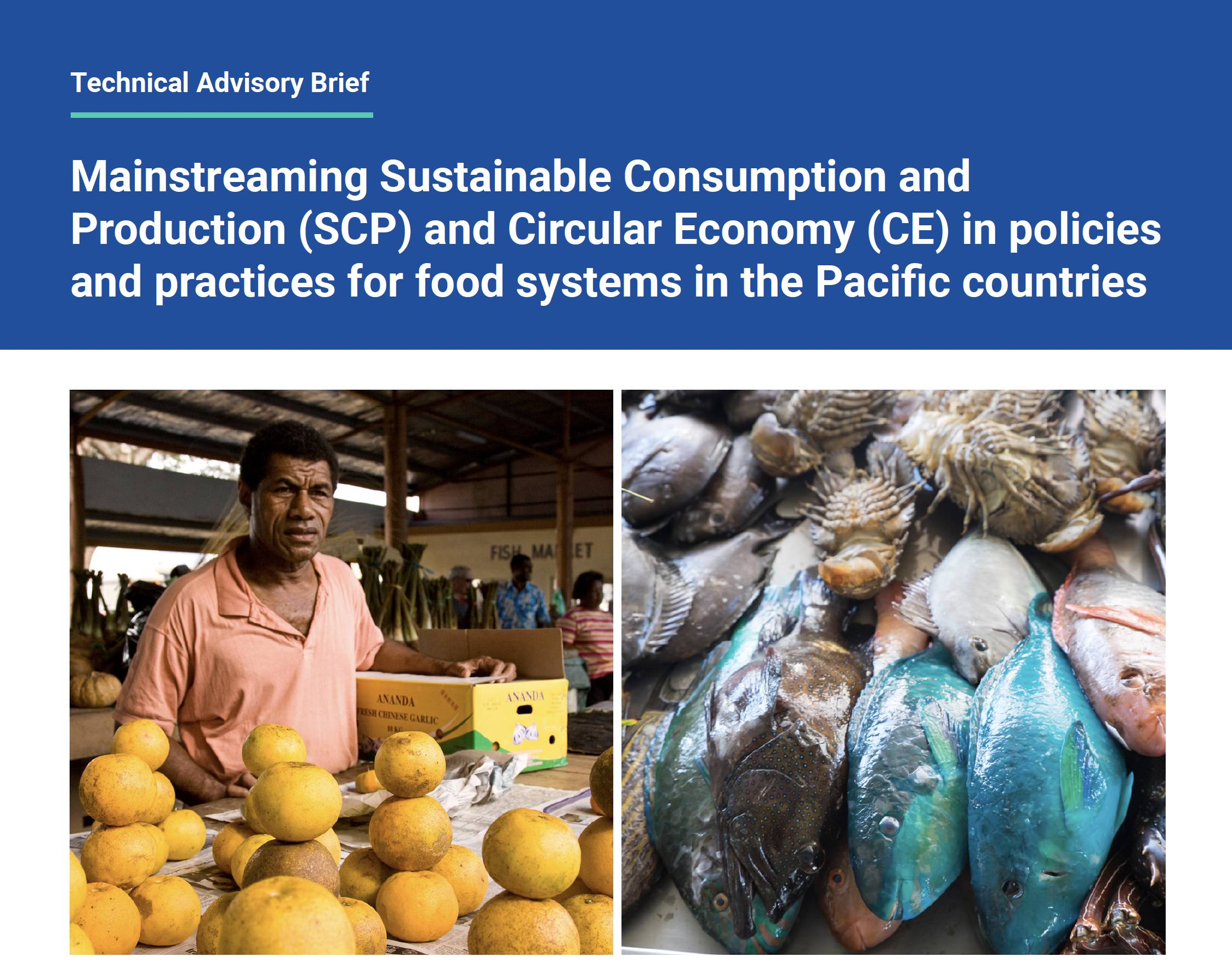
Location: Pacific region
Themes: Sustainable Food Systems
The Challenge
Sustainable food system has been vastly recognized as one of the priority issues in the Pacific Countries contributing to societal well-being and environmental stewardship. Fifty to seventy percent of people in the region depend on agriculture and fishing activities for their livelihoods. The region is faced with crop yield decline due to climate change impacts, soil degradation, and urbanization. In addition, many Pacific Islanders are experiencing an increase in nutrition-related diseases such as obesity, diabetes, and heart disease, which are due to food choices that are often prefer imported processed food products which are less expensive and more convenient than locally grown produce but less healthy. They also face unique challenges in realising equitable benefits in the global food system. Smallholder farmers have very limited access to modern technology, knowledge, and markets which require production at scale. The promotion and development of sustainable food systems in the Pacific is important to ensure food safety and security, improve nutrition and foster healthy diets and lifestyles, thereby contributing to the health and well-being of Pacific peoples, local livelihoods, and national economies. It is important to shift and strengthen strategies on food systems from national, regional to global level towards a transformative pathway, moving the Pacific’s development trajectory towards resilience, resource efficiency, and a low-emission pathway. The region’s strategic aspirations call on expanding crop diversity and developing unique value chains for markets and international supply. This will require clear and effective supportive public policy and enabling capacity to not only adopt environmentally sustainable production practices, but also to reduce inefficiencies and post-harvest losses in the value- and supply-chains, focusing on import substitution and promoting holistic policies and multisectoral coordination.
In promoting a value-based economy, and can be further valued and consolidated, as a strength to be respected and leveraged to expand livelihood opportunities, linked to blue, green, and creative economy, supporting sustainable tourism, fisheries and shipping, and contributing to food security and safety. To facilitate this transition effectively, it is imperative to accelerate the adoption of innovative practices among small and medium-size enterprises (SMEs). Doing so will not only enhance their competitiveness but also contribute significantly to the transformation of local and regional markets, fostering a more sustainable and resilient economic landscape. Addressing the challenges facing food systems in the Pacific Island countries requires a multi-faceted and collaborative approach that involves governments, civil society organizations, the private sector, farming and fishing communities. Efforts to improve food security and sustainability require investments in research and development, infrastructure, and capacity building, as well as the implementation of policies and programs that support the development of local food systems and promote the use of sustainable and resilient food production practices.
Objectives
- Facilitate the shift towards sustainable food systems in selected Pacific countries by supporting the creation of locally relevant SCP and CE policies and practices.
- Explore key innovations, components of a vision, and potential actions that contribute to their effective scaling up.
- Prioritise the development of a forward-thinking framework and strategic plans to steer the transition towards SCP and CE in these vital sectors.
Way Forward
- Identify and analyse policies and practices supporting development of the circular economy, health and resilience in agriculture, fisheries and food sector;
- Identify, document, showcase innovations towards SCP and circular economy in the Pacific Region;
- Conduct national level activities based on the results of streams 1 and 2, such as multi-stakeholder national consultation/s (MSC) with decision makers, stakeholders, and other key players to reflect on the assessment report and to identify strategies for preparation of a roadmap towards mainstreaming SCP and CE in agrifood policies and practices;
- Conduct regional level activities to identify strategies for preparation of a regional roadmap to identify the opportunities for collaboration and action towards mainstreaming SCP and CE in food policies and practices.
- Identify and analyse policies and practices supporting development of the circular economy, health and resilience in agriculture, fisheries and food sector;
- Identify, document, showcase innovations towards SCP and circular economy in the Pacific Region;
- Conduct national level activities based on the results of streams 1 and 2, such as multi-stakeholder national consultation/s (MSC) with decision makers, stakeholders, and other key players to reflect on the assessment report and to identify strategies for preparation of a roadmap towards mainstreaming SCP and CE in agrifood policies and practices;
- Conduct regional level activities to identify strategies for preparation of a regional roadmap to identify the opportunities for collaboration and action towards mainstreaming SCP and CE in food policies and practices.



